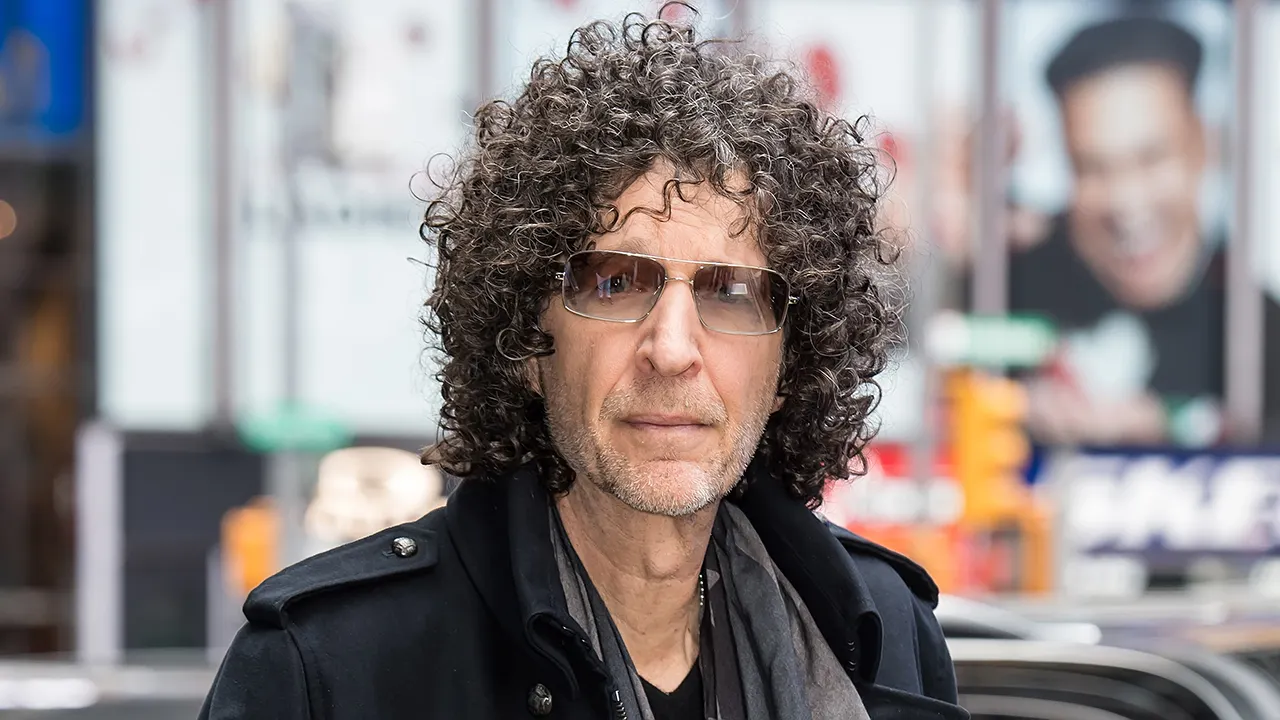
Michael Phelps knows himself.
He knows if he doesn’t exercise throughout the week, he’ll turn into some “big ass ogre that no one wants to be around.”
He knows Post Malone’s music has recently worked best for cardio days and Eminem’s for heavy lifting.
He believes in structure, which is why he has his four sons place their shoes and backpacks neatly by the door.
He understands that while he hardly ever swims these days, it’s still the one thing that will help him through a bad mental health spell. And he knows that peace, for him, is cooking breakfast and dinner for his wife and sons each day.
There is an easy answer for why Phelps, the most decorated and accomplished Olympian of all time, knows these idiosyncrasies about himself: He writes down even the most minuscule details of his day in a journal, then reads over his entries later on, viewing it as a tool to better understand himself.
“I have to be the best version of myself and give myself that chance,” he told me.
We talked about many things: his love for old school hip-hop, the scorpions that have recently been hiding around his house and how he’s able to maintain a positive headspace in part because of journaling.
I swam competitively for 15 years and, like most swimmers, idolized Phelps for his 23 gold medals over five Olympics. But as the years went on, something else stood out: His emotional intelligence and sense of self.
To better understand where that came from, I decided to test Phelps’ journaling method. The idea was simple: One notepad, one pen and one week to see what I might pick up from the best Olympian of all time.
In Phelps’ world of journaling, there are two rules.
The first: No limits.
No prompts, no planning, just riffing.
Phelps established this as a first-time journaler, and it’s been his style since.
“It was my way of just getting all the thoughts and feelings and emotions on paper,” he said. “To where I wasn’t really carrying them as excess weight around my life.”
The second rule comes naturally if you’re following the first: Document everything.
How did you feel when you woke up? What was on the agenda for the day? Did an interaction make you feel weird? What did you eat for dinner?
At first, Phelps admitted his intention was simply a desire to remember. But he came to see the entries as useful in another way.
“I always want to constantly learn,” he said. “Reliving those memories again, I’m always learning different things.”
So that night, I cracked open my own journal. I put on my writing music of choice, Bon Iver and Beach House, placed my phone across the room and clicked my pen. Before this experiment, I’d call myself a loose journaler, picking it up here and there or documenting a trip I really wanted to remember. But I’ve never done it the way Phelps does, noting small details about a regular day.
I worried I wouldn’t have anything to say. But in order to journal the Phelps way, I started with little mundane details about my morning:
Been feeling sick so I’ve been waking up way slower than usual recently. This morning I drank two cups of blueberry coffee and had yogurt with granola and raspberries.
OK. Nothing groundbreaking.
Was texting Lauren and Kasey today and talked about our trip to Philly in March, so excited for that.
I continued to write, elaborating on why that excited me, which led me to my first surprise. Those friends are some of my best friends from college. I used to see them every day. Now we live hundreds of miles away from each other and instead of walking to each other’s apartment, hanging out requires a flight or long drive. I didn’t know where exactly my thoughts were coming from, but I filled up several pages on our friendship and how it has evolved.
It felt like one of those magic tricks where the magician pulls a never-ending scarf out of their sleeve: More and more unexpected thoughts kept rolling out.
I wrote about the group chat we have, called Hoping for Highs. To stay connected, we used to send our highs and lows of the week every Wednesday. A little tradition that I loved. It always made me feel up to date with their lives. But I realized while journaling that we hadn’t done that in forever.
We’re just so much busier now and we are so much further away from each other and I hate it. I hate growing pains.
Phelps picked up a journal for the first time in his early 20s as a last-ditch effort to avoid seeing a therapist.
His mom, Debbie, raised him and his equally active two older sisters while simultaneously working as a school principal and studying as a graduate school student. He made it clear that two sentiments of his upbringing are true: His mother did “a f——- hell of a job” raising him and his sisters, but there was no time for emotions.
“My mom taught us to stuff it down and pretend like everything’s fine,” Phelps said. “She did the best she could in providing and pretending like everything was great on the outside, but I think for myself and my two sisters, that’s why we took to journaling. Because we wanted to get this stuff out.”
Phelps is now a big advocate for therapy, but the journaling stuck.
He journaled on the day each of his four sons was born, jotting down every detail — what he was doing, what the trip to the hospital was like and how special each of those milestones were for him and his family. He also has countless entries of bad days. Or filler days where nothing major happened.
But all of his days to him, good, bad or boring, are puzzle pieces.
He first started viewing his life as a puzzle during his swimming career. There were parts of him, or rather pieces, that didn’t quite fit. Some he couldn’t understand. Unexpected “s—head moods” and “hating who he was” when looking in the mirror. Each one confusing him when holding them up to the rest of the pieces of his life.
When he realized he could employ the help of his journal entries, he slowly began to crack some sort of code.
“I’m like, ‘Oh, I was in a s—head mood because I slept four or five hours for three days in a row,’” he told me, laughing. “Like, hmm, no wonder you were not very nice!”
By recording as many details as he can, he’s able to go back and access everything when he needs it. Essentially, to Phelps, re-reading entries is piecing together the puzzle.
“I feel like when I don’t do it, I’m not giving myself the best chance to be me,” he said. “And I know that when I’m just my authentic self, it’s a lot easier and a lot happier to live life.”
On my second day, I turned on Leon Bridges and Fleetwood Mac. I was a little more excited than day one, knowing that I might stumble into something unexpected. Once again, I started with my morning: Still kind of feeling sick so mixed it up this morning and drank chamomile tea with milk and honey. Forgot how good tea is.
Wait a minute, I thought. Tea is really good. I love tea! Why am I not drinking tea regularly?!?
I know, I know: Forgot how good tea is. Not exactly a life-altering revelation. But the simple act of writing about tea caused me to stop and think. Maybe that’s what Phelps was talking about when he told me you’ll discover things about yourself that can lead to routine changes.
“If you’re not doing these small things that make you the best version of you,” Phelps said, “then you’re skipping, you’re cheating big parts of life. You’re not being your authentic self. For me, I believe we are all so special in our own ways and we’re supposed to be our authentic self and if we’re not doing that, then c’mon.”
As the days went on, I started to really look forward to journaling each night. In a way, it became 10 to 15 minutes of my day when all I had to worry about was remembering what I did and how I felt. And no matter how much I didn’t expect there to be something to expand on, there always was.
One day I realized I’d spent too much time on my phone so before going to bed, I set my phone to “do not disturb,” and I’ve slept better ever since. Another day I realized I had hardly drank any water, which made me stop and think. I get tons of headaches and usually write it off as allergies. But maybe, just maybe, I’m chronically dehydrated? I made an effort to drink more the rest of the week and will try to tally how many headaches I get in my journal to see if there’s a trend. Small changes, but maybe I wouldn’t have made them otherwise.
It reminded me of something Phelps said about “doing little things well and stacking those things on top of each other.”
“As long as I’m doing something right or something positive throughout the day,” he said, “then I feel like I’m learning from that.”
Four days after my first journal entry, I did something I hadn’t done in a while. I texted the highs and lows of my week to our group chat. While we still talk often, nothing makes me feel more connected with my friends than hearing about their recent highs and lows. A few minutes later, they texted back their lists, too.
Ultimately, I’m just surprised at how many details I’m aware of now, by letting myself marinate in situations or topics longer than I ever would have. And maybe the most telling part of the experience has been reading back the entries, even a week later.
It’s allowed me to look deeper into how I function, forcing me to hover over the versions of myself from each day of the week. Or, in Phelps’ terms, to scan each puzzle piece until I know what fits.
(Illustration: Dan Goldfarb / The Athletic; Clive Rose / Getty Images)












